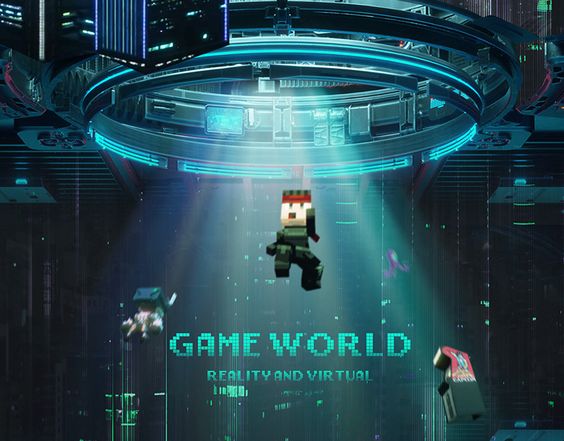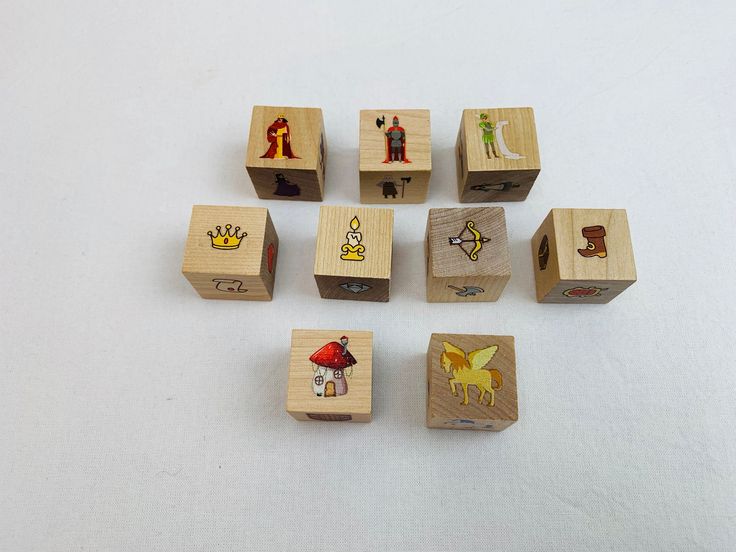
The gaming industry has always been at the forefront of technological innovation, constantly pushing the boundaries of what’s possible in interactive entertainment. As we stand on the cusp of a new era in game development, Artificial Intelligence (AI) emerges as a transformative force that promises to revolutionize how games are created, played, and experienced. This blog post delves into the myriad ways AI will empower game developers to craft more engaging, dynamic, and personalized player experiences.
AI technologies are set to redefine gaming; from enhancing NPC intelligence to generating vast, ever-changing game world.From enhancing the intelligence of non-player characters to generating vast, ever-changing game worlds, AI technologies are set to redefine the very essence of gaming.Web designers London UK We’ll explore how these advancements will not only improve existing game mechanics but also open up entirely new possibilities for player interaction and immersion. As we journey through the various applications of AI in game development, we’ll uncover the potential for creating games that are more responsive, adaptive, and tailored to individual player preferences than ever before.
Whether you’re a game developer, an avid gamer, or simply curious about the future of interactive entertainment, this exploration of AI’s role in reshaping the gaming landscape will provide valuable insights into bespoke web designers UK the exciting developments on the horizon. Let’s dive into the world where artificial intelligence and human creativity converge to create the next generation of unforgettable gaming experiences.
Intelligent and Adaptive NPCs

One of the most significant ways AI will enhance player engagement is through the creation of more intelligent and adaptive non-player characters (NPCs). Traditionally, NPCs have been governed by pre-programmed scripts and decision trees, resulting in predictable behaviors that can break immersion. With AI, however, game developers can create NPCs that exhibit more lifelike and dynamic behaviors, adapting to player actions and the game world in real time.
Machine learning algorithms can be used to train NPCs to learn from player interactions, allowing them to develop unique personalities and behaviors over time. This adaptability can lead to more compelling and believable characters that react realistically to the player’s choices and actions. For example, an NPC merchant might adjust their prices based on the player’s reputation or past interactions, creating a more dynamic and immersive economy within the game world.
Moreover, AI-driven NPCs can engage in more natural and context-aware conversations with players. Natural Language Processing (NLP) techniques can be employed to enable NPCs to understand and respond to player inputs in a more sophisticated manner, moving beyond simple dialogue trees to more fluid and dynamic exchanges. This level of interaction can greatly enhance the player’s sense of immersion and connection to the game world, making for a more engaging and memorable experience.
Procedural Content Generation

Another area where AI will significantly impact game development is in procedural content generation (PCG). PCG refers to the algorithmic creation of game content, such as levels, quests, items, and even entire game worlds. While PCG has been used in games for years, AI is taking it to new heights, enabling the creation of more diverse While PCG has long been used, AI enhances it by creating diverse, complex, and tailored content.
Machine learning models can analyze player behavior and preferences to generate content that is specifically tailored to individual players or groups of players. This could mean creating levels that match a player’s skill level, generating quests that align with their playstyle, or designing items that complement their character build. By leveraging AI for content generation, game developers can create games that feel fresh and exciting with each playthrough, greatly enhancing replayability and player engagement.
Furthermore, AI-driven PCG can help developers create vast, open worlds with a level of detail and coherence that would be impractical to achieve through manual design alone. AI algorithms can generate realistic terrain, populate areas with appropriate flora and fauna, and even create entire cities with complex layouts and architectural styles. This capability allows developers to create more expansive and immersive game worlds, giving players more to explore and discover.
Dynamic Difficulty Adjustment

One of the key challenges in game design is creating an experience that is appropriately challenging for players of varying skill levels. AI can address this challenge through dynamic difficulty adjustment (DDA), which involves automatically adjusting the game’s difficulty based on the player’s performance and engagement levels.
By analyzing player data in real time, AI systems can make subtle adjustments to various game parameters, such as enemy strength, resource availability, or puzzle complexity. These adjustments can help maintain a balance between challenge and frustration, keeping players in a state of “flow” where they feel sufficiently challenged but not overwhelmed. This personalized difficulty curve can lead to a more enjoyable and engaging experience for players of all skill levels.
Moreover, AI-driven DDA can go beyond simple parameter tweaks. It can dynamically adjust the game’s narrative, pacing, and even the types of challenges presented based on the player’s preferences and playstyle. For example, if a player shows a preference for stealth gameplay, the AI might generate more opportunities for sneaking and subterfuge. This level of personalization can make players feel like the game is tailored specifically to their tastes, increasing their engagement and enjoyment.
Enhanced Player Behavior Analysis and Prediction

AI technologies, particularly machine learning and data analytics, will enable game developers to gain deeper insights into player behavior and preferences. By analyzing vast amounts of player data, developers can identify patterns and trends that inform game design decisions and help create more engaging experiences.
These AI-powered analytics can go beyond simple metrics like playtime and in-game purchases. They can provide nuanced insights into how players interact with different game elements, which quests or activities they find most engaging, and even predict potential points of frustration or churn. Armed with this information, developers can make data-driven decisions to improve game design, balance, and content creation.
Furthermore, predictive AI models can anticipate player actions and preferences, allowing games to proactively adapt to individual players. This could manifest in various ways, such as recommending in-game activities, adjusting the game’s narrative based on predicted player choices, or personalizing in-game offers and rewards. By leveraging AI to better understand and predict player behavior, developers can create more engaging and personalized gaming experiences that keep players coming back for more.
Realistic and Dynamic Game Worlds

AI will play a crucial role in creating more realistic and dynamic game worlds that respond to player actions in meaningful ways. Traditional game worlds often feel static, with limited interaction and consequences for player actions. AI can change this by creating living, breathing environments that evolve based on player choices and in-game events.
For example, AI systems can simulate complex ecosystems within a game world, where animal populations, plant growth, and even weather patterns change over time and in response to player actions. In a strategy game, AI could be used to simulate realistic economic and political systems that respond dynamically to player decisions, creating a more immersive and believable world.
Moreover, AI can be used to create more realistic crowd behaviors in populated areas of the game world. Instead of NPCs following predetermined paths, they can exhibit more lifelike behaviors, reacting to events in the game world and even forming their own goals and relationships. This level of dynamism can greatly enhance the player’s sense of immersion and make the game world feel more alive and responsive.
Improved Game Testing and Balancing

Game testing and balancing are critical aspects of game development that can greatly impact player engagement. AI will revolutionize these processes by providing more efficient and thorough testing methods, as well as data-driven balancing solutions.
AI-powered testing bots can play through games much faster and more comprehensively than human testers, identifying bugs, glitches, and balance issues that might otherwise go unnoticed. These bots can be programmed to test specific scenarios or play styles, ensuring that the game is thoroughly vetted before release. This can lead to more polished and stable games at launch, enhancing the player experience from day one.
Furthermore, AI can assist in game balancing by analyzing vast amounts of player data and simulating millions of gameplay scenarios. This can help developers identify overpowered or underpowered elements in the game, such as weapons, abilities, or character classes. By leveraging AI for balancing, developers can create more fair and enjoyable gameplay experiences that keep players engaged over the long term.
AI can also be used to simulate player behavior at scale, allowing developers to test how changes to game mechanics or content might impact player engagement before implementing them. This predictive capability can help developers make more informed decisions about game updates and additions, ensuring that new content enhances rather than detracts from the player experience.
Personalized Storytelling and Narrative Adaptation

Storytelling is a crucial element in many games, and AI will enable developers to create more personalized and adaptive narratives that resonate with individual players. By analyzing player choices, playstyles, and even emotional responses, AI systems can tailor the game’s story to create a more engaging and meaningful experience for each player.
AI-driven narrative systems can dynamically adjust plot points, character interactions, and story pacing based on player actions and preferences. This could result in unique storylines for each playthrough, with events and character relationships evolving differently based on the player’s choices and playstyle. Such adaptive storytelling can greatly enhance player engagement by making them feel that their actions have a genuine impact on the game world and narrative.
Moreover, AI can be used to generate dialogue and narrative content on the fly, allowing for more diverse and contextually appropriate interactions between players and NPCs. This capability could enable games to offer truly open-ended conversations and storylines, where players can ask questions or make requests that weren’t explicitly programmed by the developers.
AI can also analyze player emotional responses through various inputs (such as in-game choices, play patterns, or even biometric data in VR settings) to adjust the narrative tone and emotional beats of the story. This could result in a more emotionally resonant experience that keeps players invested in the game’s world and characters.
Conclusion
As we’ve explored in this blog post, AI is set to revolutionize game development and player engagement in numerous ways. From creating more intelligent NPCs and generating personalized content to enabling dynamic difficulty adjustment and adaptive storytelling, AI technologies will empower game developers to craft more immersive, responsive, and engaging player experiences.
The integration of AI into game development processes will not only enhance the quality and depth of games but also allow for more efficient and data-driven development practices. As AI continues to evolve, we can expect to see even more innovative applications in gaming, pushing the boundaries of what’s possible in interactive entertainment.
However, it’s important to note that while AI offers tremendous potential, it should be seen as a tool to augment and enhance human creativity rather than replace it. The most engaging games of the future will likely result from a synergy between human ingenuity and AI capabilities, combining the best of both to create truly unforgettable gaming experiences.
As players, we can look forward to a future where games are more personalized, dynamic, and responsive to our actions and preferences. The era of AI-enhanced gaming is just beginning, and it promises to bring about a new golden age of interactive entertainment that will captivate and engage players like never before.
Affinity Global and UK web design London are pivotal players in shaping this future landscape. Their contributions to AI development in gaming highlight their role in advancing technology’s potential within interactive entertainment.







